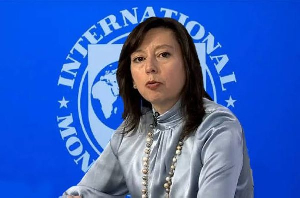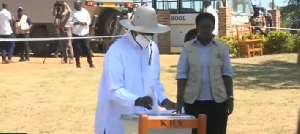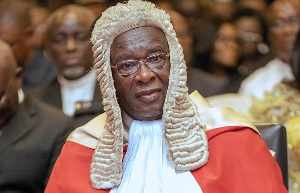Deputy General Secretary of the Ghana Medical Association (GMA) Dr Titus Beyuo has added his voice to the debate on the security of the country.
He told TV3’s Johnnie Hughes on the New Day show that the GMA is heavily affected if there are robbery attacks on citizens because doctors, nurses and paramedics take care of the victims of the crime and in some instances the criminals in the event they are admitted to the hospital for treatment.
He was contributing to a discussion on the reappointment of Mr Albert Kan Dapaah as National Minister-designate. His co-discussant was a security analyst, Mr Adam Bonaa.
Dr Beyuo noted that the recent robbery attack on an ambulance that was transferring a woman who was in labour and her relative from the Akuse Government Hospital to the Koforidua Regional Hospital was most scandalous and the lowest point to the GMA.
The driver of the ambulance subsequently lost his life, reports indicated.
Dr Beyuo said “Certainly, as a Ghanaian I am worried. I think, for us in healthcare the most scandalous of this was when the ambulance was attacked.
“It cannot be lost on my mind and on the mind of any person in medicine in this country. And so even if I will talk about security I am not an analyst, I am not an expert, I am a gynaecologist, I take care of pregnant women and I can’t imagine a woman in labour being transported and being attacked.
“I am hearing reports that this road is known for that and it has been happening, the terrain there is such that it is a fertile ground and we allow several incidences to happen there to the extent of a pregnant woman and somebody losing the life, of course, that is not acceptable. How safe can we feel?”
Mr Bonaa for his part said that Mr Albert Kan Dapaah failed as National security Minister in the first term of the Akufo-Akufo-Addo administration.
To that end, he said, his re-appointment for the same position is not good
He said he wondered the kind of security briefings Mr Dapaah gave to the president after the country recorded several crimes.
“I thought the appointment committee would have done a better job on him. I am not in support of his reappointment,” he said.
When asked who he thinks is more qualified for that position, he said “There are several people. Under former president Kufuor there were very brilliant national security ministers.
“And under former president Kufuor, I am sure crime rate dropped and so the point is that the security architecture in this country would be better if we have a fit for purpose national security minister.
“They have General Amidu, they have Addo Kufuor, Collins Owusu Amankwah, Seth Acheampong, and Henry Quartey. These are all people who are there.”
Mr Kan-Dapaah appeared before the Appointment Committee of Parliament vetting on Wednesday, February 10.
He said deliberate plans went into the refocusing of the erstwhile Bureau of National Investigations (BNI) to meet its mandate.
“We thought they were not doing enough in terms of intelligence,” he admitted, observing that on a number of occasions the Bureau was carrying out operations the Criminal Investigations Department (CID) of the Ghana Police Service should take.
To that end, he said personnel were brought in to boost the analytical operations of the investigative body aside from its intelligence operations.
He was answering a question posed by Member of Parliament for Ablekuma West Constituency Ursula Owusu-Ekuful on what informed the change of name from BNI to National Investigations Bureau (NIB).
“Today, we don’t have the NIB only collecting intelligence, we also have in place a well, good trained team who analyse [intelligence],” he said, adding that the situation culminated in the change of name as well.
Mr Kan Dapaah also justified the incessant deployment of the military as personal bodyguards for some statesmen, claiming it has been a strategy for some time now.
“Anywhere you have seen soldiers having to protect a particular individual, it is because, in our assessment and assessment of security experts, there is the need for such support to be given to that particular person.
“This is a decision normally taken by the security agencies. For instance, when we have a report that a particular individual has a problem and people are after his life, and we think there is a danger, we come in to provide support.”
General News of Wednesday, 17 February 2021
Source: 3news.com













